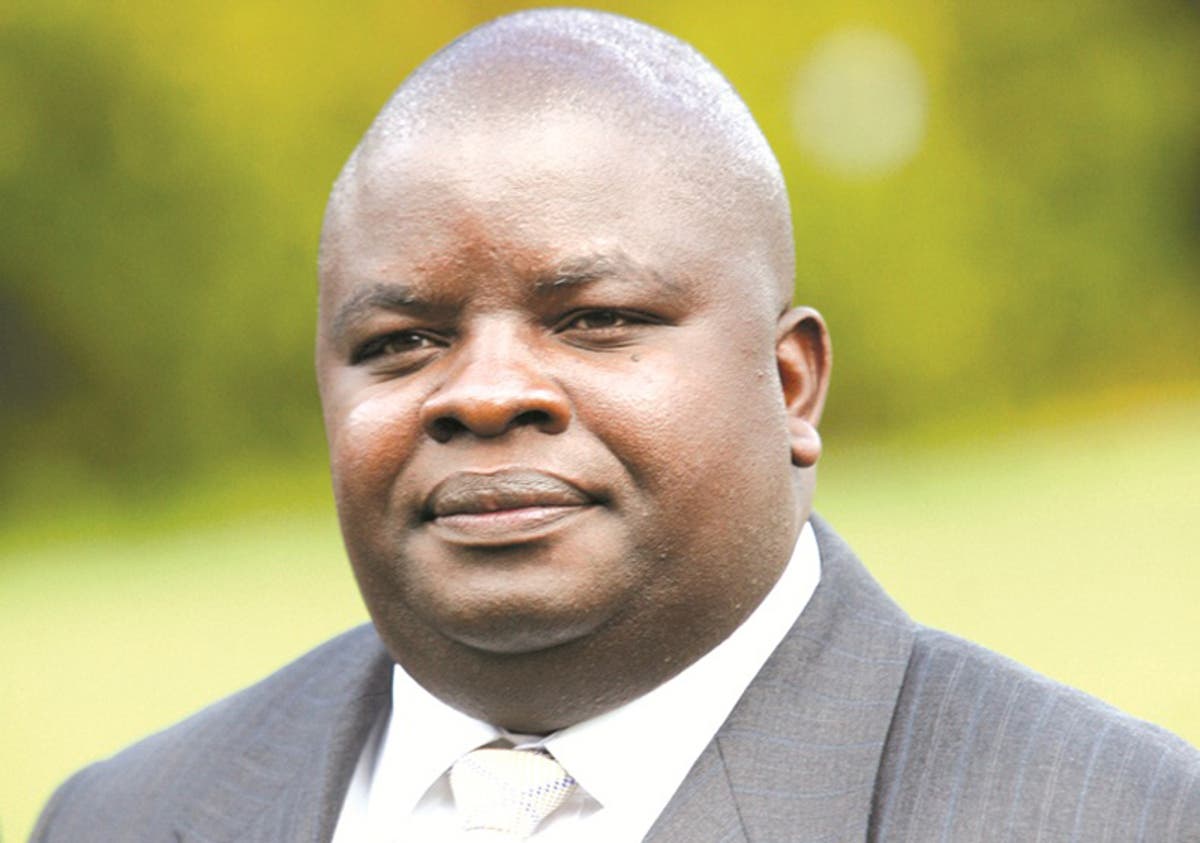ZIMBABWE has since mid-last year been experiencing relative economic stability, thanks to the government’s introduction of a raft of measures, among them the foreign currency auction.
The auction has resulted in improved access to foreign currency by business and has seen the local currency trading at an average $85 to the US$.
Prices of mainly basic goods have remained relatively stable.
Finance minister Mthuli Ncube will present his mid-term fiscal policy in parliament on Thursday.
He is upbeat the country’s economy will grow by 5,4 percent this year.
The Daily News on Sunday’s chief writer Mugove Tafirenyika (Q) on Thursday sat down with former Economic Planning minister in the confidence-inducing government of nation unity between 2009 and 2013, Tapiwa Mashakada, to hear his view on the economic performance and expectations from the fiscal policy.
Mashakada is also treasurer general of the MDC led by Douglas Mwonzora.
Below are excerpts from the interview.
Q: Can you give us an overview of the state of our economy?
A: The economy remains resilient in the face of macro-economic shocks and aftermath of climatic shocks which have been exacerbated by the Covid-19 pandemic.
Covid-19 response measures in the form of economic stimulus are helping to keep the economy on the track.
Zimbabwe is facing a humanitarian crisis and the healthcare sector needs more resources to cope with the devastating effects of the pandemic linked to this, social effects of the catastrophe are severe as poverty levels are increasing as livelihoods have been affected.
On the macro-economic and fiscal front the National Development Strategy 1 is underway.
Inflation has been contained because of exchange rate stability.
The auction system is proving to be an anchor of exchange rate stability.
The stock market remains bearish as counters have been affected by the Covid-19 pandemic and the resultant lockdown.
The twin deficits, namely the fiscal and trade deficits, are under control.
These are the tell-tale signs of macro stability.
However, stability does not mean that everything is perfect. There is no such thing in economics.
Economic challenges will continue to exist because resources are scarce whereas wants and needs are unlimited.
Most analysts often miss this point.
Without this relative stability our economy would be in a worse off position.
I have talked about the simultaneous existence of economic challenges alongside stability because some of these challenges are structural.
For example, employment costs have been capped at 30 percent of the budget, which means salaries and wages cannot cope with consumption expenditure.
These are unintended consequences of stabilisation. You cannot have your cake and eat it.
In economics there are trade-offs and opportunity costs of policies.
What the government needs to do is strengthen social protection in order to lessen the burden on the poor, especially those on fixed incomes like pensioners.
The economy is still riddled with corruption. The point is that even developed countries with good economies still suffer from unemployment, poverty and inequalities.
Go to London and visit Brixton in South East London and see real poverty. But contrast that with the Canal Wharf, which is the financial district of London.
You will think you are in a totally different city. Yes, we may have challenges, but the economy is in a recovery mode.
Q: The World Bank, the IMF and the government have given different growth projections for the economy for this and next year. Can you explain the contradiction?
A: Differences in growth projections between the IMF, World Bank and the government are due to what economists call “working assumptions”.
In growth models, the “error term” varies from one estimate to another.
From a modelling point of view such forecasting differences are common.
Moreover, different data can yield differing growth projections.
But for me, the most important thing is that all the three projections point towards a robust growth outlook.
The agricultural sector has performed well due to the bumper harvest.
As at June 2021, maize deliveries to the GMB stood at 600 000 metric tonnes compared to 98 000 tonnes in June 2020.
Infrastructure growth is impressive, especially in the road construction and energy sectors.
Confidence levels are improving.
Despite the Covid-19 pandemic, new airlines are coming to Zimbabwe, including Qatar Airways and Ludtansa. This is no mean feat.
What is more important is that the growth must be inclusive. Which means it must not be jobless growth.
That is the point we must always emphasise and demystify the “trickle-down effect”.
The impact of inclusive growth must be felt by the poor. It must be palpable.
Q: The Finance minister is set to present his mid-term fiscal policy. What are the expectations?
A: The mid-term fiscal review is going to be presented to Parliament on Thursday July 29. The Statement will: (i) review the 2021 budget performance; (ii) review the global and regional economic developments; (iii) assess the implementation of NDS1 this far; (iv) project the Economic outlook and the macroeconomic framework for 2021; (v) disclose new Covid-19 response and stimulus measures; (vi) propose additional revenue measures to fund the budget.
Q: You have also said the economy is doing well, but why is it not being felt by the ordinary people?
A: In my earlier response I intimated that economic growth is necessary, but not sufficient enough to benefit the poor.
In 2015, the United Nations came up with 17 Sustainable Development Goals (SDGs).
This was a realisation that sustainable development is multi-faceted. It is not just about growth and recovery alone.
Development has social indicators and environmental impacts. There is also the governance side of sustainable development.
Therefore, for recovery to benefit everybody, it’s a process of making growth sustainable. It’s not going to be a miracle. No one must be left behind.
Q: Some people have even called for price controls. Is the foreign currency auction working?
A: Price controls are not recommended. However, there must be price monitoring. Clearly the auction system is working.
The majority of those who are into export and import business are now able to get foreign currency, including SMEs. The exchange rate has stabilised between 83 and 85 for over 12 months.
Of course the parallel market will never die. Even in America you find it, but it is now insignificant.
Q: Is there scope in dollarization as agitated by some economists?
A: In my view, the economy must fully dollarise. The logic behind is that, civil servants are getting salaries in local currency, but face prices in US$.
They need fuel, for example, which is charged in US$. It does, therefore, not make sense to continue using local currency when products are sold in US$ across the board.
All along I used to buy bulk water for my residence in local currency. But this has since changed.
A 50 00 litre tanker now costs US$40. This is just to show you that 99 percent of goods and services are now sold in US$ — from goats, maize, sweet potatoes, you name it.
Those not charging directly in US$ are pegging their prices at equivalent parallel market rates. So it comes to the same thing.
But in order to fully dollarise, the government must amend the Finance Act and start collecting taxes in US$.
Q: Turning to politics, your party has requested dialogue with President Emmerson Mnangagwa. What form should it take and what is the endgame in that?
A: Dialogue is the oxygen for peace and security. It is necessary for political stability, economic development and social progress in Zimbabwe.
The end game is to build a united and cohesive nation, not a polarised nation.
Look at what is happening in other countries where people are fighting.
You cannot have development under divisive conditions. We want inclusive dialogue to discuss the present challenges bedevilling our country.
We must find solutions together. We must find each other. We must respect our national values and ethos as a people.
Let us defend our rich history of the liberation struggle and fulfil its unfinished business as a united people.
Elections come only once in five years. In between elections, the country must be stable and the economy must tick.
The constitution must be observed and necessary political, legal, electoral and structural reforms must be discussed and implemented together.
Most people think the dialogue is about another government of national unity (GNU). Far from it; the next election is only one and half years away.
Mnangagwa is the president of Zimbabwe whether we like it or not. He was declared the winner by Zec.
The opposition petitioned the Constitutional Court and lost. We cannot continue to fight the last war.
This is why the MDC is right on dialogue. President Mwonzora must be commended for striking the right code. The majority of Zimbabweans want unconditional and inclusive dialogue.
Q: Mwonzora has indicated that time is running out for dialogue. How long are you prepared to wait given that no response has been given by Mnangagwa?
A: Dialogue is a process and we do not set ultimatums or conditions for it to start or end.
President Mwonzora has never given a timeline for dialogue to commence.
Our hope is that no one should be left behind. Dialogue will happen and happen soon.
Q: Would you say there is a sense of frustration in your party because of the lack of response?
A: Dialogue needs thorough preparations for it to be meaningful. We cannot rush the process just to tick the boxes.
Let there be issues based dialogue. We are happy with the processes that have begun to unfold.
Any sense that we are getting frustrated is totally misplaced.
Q: Mwonzora has said he will win elections by 66 percent. Is that not being over ambitious?
A: I have heard President Mwonzora predicting a victory margin of 66 percent. I even wish him even better.
He is the only person qualified to explain his quantitative predictions, but suffice to say that the MDC is going into the 2023 elections to win.
I must remind Zimbabweans that we have won elections in Zimbabwe before.
The most familiar elections to remind you are the 2008 elections. President Mwonzora knows the support the MDC is enjoying across the length and breadth of Zimbabwe. In any case no general goes into a battle to lose.
Q: What gives your party such confidence given that there isn’t much political activity taking place to gauge your support?
A: Because of the Covid-19 pandemic and lockdown, political activity is low.
But this is only so when you compare it to pre-Covid-19 years. Presently, we are observing Covid-19 protocols and organising virtually. The response is massive.
The MDC is trending on social media.
The people are happy that the name “MDC Alliance” now belongs to the MDC, by virtue is the undisputed fact that we are the big brother in the Alliance.
The Alliance agreement is clear on that. When elections come, no other party can contest under the MDC Alliance banner except the MDC, which is the legitimate leader of the seven member party’s alliance.
Even the courts have pronounced themselves very clearly on this matter. So we are very buoyant that our support base is growing and our chances are high.
People do not follow individuals. Our supporters are following (the late founder of the MDC Morgan) Tsvangirai’s party. The MDC was formed by workers in 1999.
What happened after Tsvangirai’s death was an ideological rapture. Trade unionists who are the real founders remained with the party founded by Tsvangirai while former students broke away and are struggling to form their own party.
This puts to rest the propaganda that we are Zanu PFF lite. It is a figment of our detractors’ imagination.
History repeats itself. When Zanu PF broke away from Zapu in 1963 people mocked the group. Even the OAU did not support Zanu PF.
But guess which party rose to become a formidable force and finally won the 1980 elections. The MDC is almost in the same position that Zanu PF found itself in 1963.








